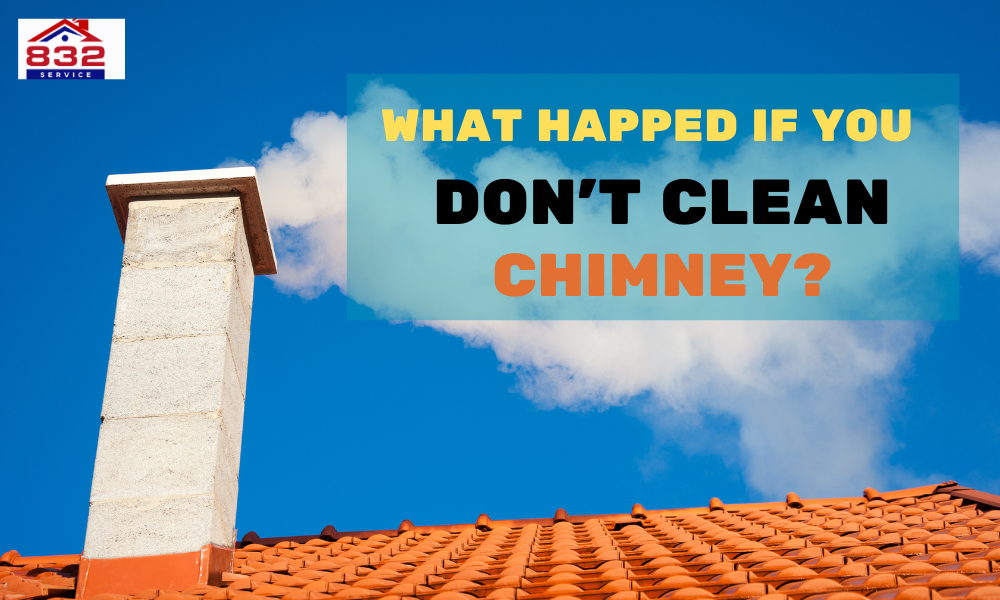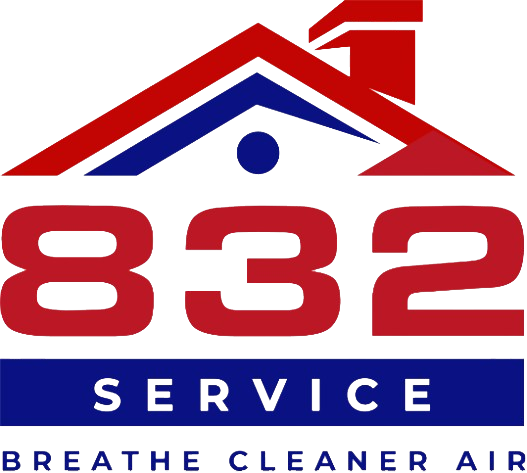Having one or more fireplaces in your home can be a source of great comfort and warmth, especially during the colder days. Chimneys are there to redirect all the smoke and excessive heat outside through the roof. But since chimneys are not the first thing that comes to mind when people talk about cleaning, they are not cleaned very often. But, what happens if you don’t clean your chimney, actually?
The most serious consequence of not cleaning chimneys is creosote buildup. This causes the chimney to catch fire as well as to return all the toxic material back into the house. They also cause the house to be full of foul smells and leave debris and ashes around the fireplace.

Let’s take a deeper look at the consequences of not cleaning chimneys.
Why You Should Clean Your Chimneys
Fireplaces produce a lot of heat and other toxic materials. The reason we don’t realize this, let alone suffer from them is because of chimneys. Because hot air is lighter than cold air, they rise and get vented out through the chimneys. But if you leave your chimney unclean for far too long, the very thing that kept protecting you will turn out to be the very thing that causes you harm.
Here are a few reasons why cleaning your chimney is a must:
1. Fire Safety
As heat and toxic fumes go up the chimney to outside, they leave behind a substance called creosote. This substance is produced when the wood is burned. Creosote that is deposited on the walls of a chimney is highly flammable. As the days pass, the layer of creosote keeps coming down to where the fireplace is and can catch fire easily.
If creosote catches fire, the fire will spread rapidly throughout the chimney which will cause a major fire hazard and can result in the loss of property, or worse.
2. Health Safety
Another reason for cleaning your chimney is to prevent health hazards. An unclean chimney can cause a lot of health issues, some of which can be fatal if left alone. First, an unclean chimney has deposits of debris and creosote in them, which hinder the path through which toxic gases such as carbon dioxide and carbon monoxide escape.
As a result, the toxic gases return to your home instead of escaping through the chimney, which causes breathing issues. If carbon monoxide enters your home in large qualities, you will never see it coming before it’s too late. This odourless gas causes people to suffocate and die.
Apart from carbon monoxide, ash and tar also can’t escape through a filthy chimney. When they come back to your home, they enter your respiratory system and cause serious damage to your body.
In addition to that, sometimes birds and other animals enter the chimney during the winter or when the chimney is not used in search of shelter and warmth. They leave a lot of excretion and other materials that rot over time and cause major health issues if not cleaned promptly.
3. Getting Rid of The Smell
One of the biggest talking points in a clean chimney vs a dirty chimney comparison is the smell of the house. Creosote not only causes fire and health hazards but also causes the home to have an acrid smell, no matter where you go. This is because creosote has an acidic smell that is not only intense but also very foul.
Add to that the smell of animal excretion or worse, their dead bodies. If you keep your chimney unclean for a long time, these smells will only get stronger and stronger until you can not take it anymore.
4. Cleanliness
Last, but not least, the cleanliness of your home also comes under threat when your chimney is unclean. First, all the ash and tar residuals that can not escape through the chimney come back down to the fireplace. These are then spread around the fireplace and then carried by air inside the home throughout the house.
Apart from that, the rotting carcasses of the dead animals in the chimney and their waste also come down the chimney and into the fireplace. It doesn’t require an expert to say that you don’t want dead animals or animal waste in your home.
Do You Need To Clean Gas Fireplace Chimneys?
Gas fireplace chimneys are less vulnerable to all the problems mentioned above than fireplaces that burn wood to produce heat. That is why people often ask, “do gas fireplace chimneys need cleaning?” Despite gas fireplaces being less prone to the aforementioned issues, they have to be cleaned regularly, albeit the frequency of the cleaning is less than the traditional fireplaces.
How Long Does It Take To Clean a Chimney?
The time taken to clean a chimney varies according to its size and the level of cleaning to be done. Despite that, the average time to clean a chimney ranges between 45 to 60 minutes. This time will depend on the aforementioned factors as well the presence of damages and blockages, etc.
Get a clear idea about how long it takes to clean a chimney-the exact time.
Final Words
Despite fireplaces being a source of comfort during the harsh winters, they can and will cause some serious damage if the chimney is not kept clean. The knowledge of what happens if you don’t clean your chimney is very important to create awareness as well as to keep oneself and their family safe.
FAQs
1. How long can a chimney go without cleaning?
The length of time that a chimney can go without cleaning depends on the type of chimney. So, the general suggestion is to clean a chimney at least once a year to be completely safe.
2. How can you tell if your chimney needs cleaning?
There are some telltale signs of a chimney that needs to be cleaned. They are:
-It will smell like a campfire.
-The room is often filled up with smoke.
-The fire doesn’t burn naturally.
-Fire takes more effort to start and kept going.
-The fireplace damper turns black, etc.
3. What happens if my chimney is dirty?
If your chimney is dirty, it will create a lot of fire and health hazards. Additionally, the house will be full of an acrid smell and the room where the fireplace is will have ash and other material strewn throughout it.
4. How often should you have your chimney inspected?
Inspecting a chimney is different from cleaning it. You need to inspect your chimney once a year to see if it needs to be cleaned.

